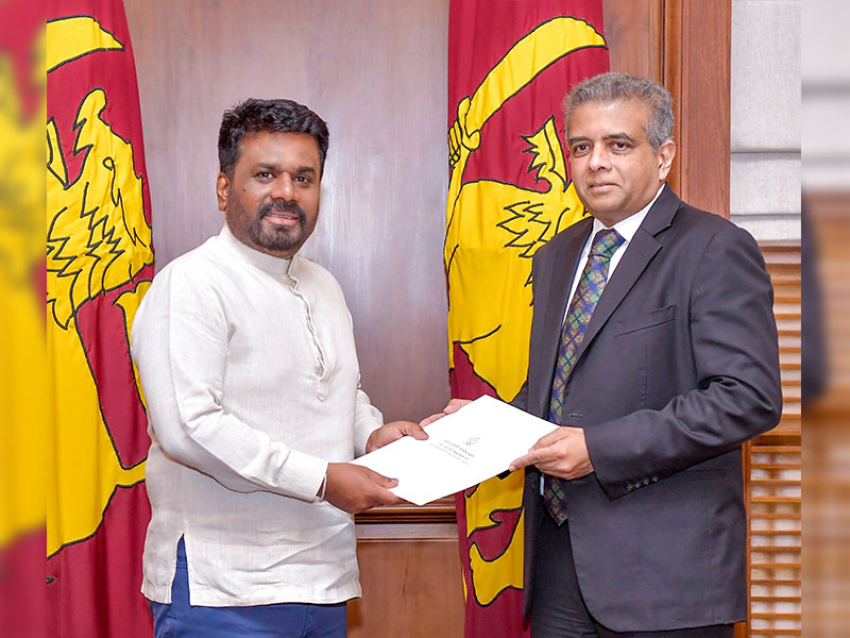The youth representatives present at the Sectoral Oversight Committee pointed out that the current general education system has failed to teach young convicts who have been convicted and are being punished, and training should be given to them to make progress in their spiritual and behavioral patterns.
It is more effective to provide vocational education for them and thus open them to a job, as well as introducing things like an income generation method in the remaining 2 years after the training period of about one year. Accordingly, in providing such vocational education, it would enable them to leave with some economic ability when they depart after the 3-year residency period, as well as reduce the temptation to re-offend.
These views were expressed by the Watareka Training School for Youthful Offenders and Department of Community Based Corrections under the Ministry of Justice, Prison Affairs and Constitutional Reforms as they presented themselves before Sectoral Oversight Committee on Reconciliation and National Unity.
The Sectoral Oversight Committee on National Integration met in Parliament recently under the Chairmanship of Hon. Dilan Perera, Member of Parliament.
Young offenders who have been sentenced by the Magistrates Courts under the Criminal Code for having committed an offense between the ages of 16 - 22 are admitted to this institution. The punishment period is not a prison sentence but a compulsory 03-year waiting period and these children can apply for a government job in the external environment after the waiting period, the Senior Assistant Secretary of the Watareka Training School for Youthful Offenders Mrs. A.V. Vajira Damayanthi said.
According to institutional data, it was pointed out that the tendency of young convicts being imprisoned during the period of 2013-2022 is decreasing and it was revealed that the family relations of many children who enter this exercise college are broken and after the waiting period, problems arise regarding the custody of some children.
Schooling is provided by the Ministry of Education in Wataraka Training School for Youthful Offenders and schooling is made compulsory there. Its children appeared for the General Examination, but the passing rate is at a very low level. In the year 2014, although the number of children who appeared for the ordinary level examination was 16, the number of children who passed was one. Only one child has passed in 2021.
Officials emphasized that it is a problem to effectively provide vocational education to those children has become challenging given that school education has been made compulsory by law. Recognizing that these policies should be changed, the Committee agreed to discuss these issues with the relevant institutions and policy makers.
The Committee raised the question of how many of the young offenders are likely to be re- offenders, and the officials pointed out that 9 out of 11 children are likely to be re-offenders.
The attention of the Committee was focused on providing necessary facilities to deliver language proficiency for these children and preparing some method to refer these children for foreign jobs in affiliation with the Foreign Employment Bureau.
The Committee also pointed out that community-based correctional departments can be used to avoid overcapacity in prisons, so attention should be paid to it.
The fact that about 50% of the people who should be sent to community-based corrections, but who have been imprisoned by the magistrate, are the people who can be sent to corrections was also taken into discussion. The Committee pointed out that this is a very concerning situation and informed that the magistrates be informed to take steps in this regard.
When considering government institutions, the youth representatives pointed out that the existence of several institutions for the same purpose and the lack of interrelationship between those institutions is a problem. During the presentation of the projects, they also proposed that income generation processes can be created by introducing projects such as green projects, plastic recycling, and drinking water bottling.
Moreover, those who earn some income with the help of the government should have the ability to pay a part of that money back to the government and invest that money for the benefit of other
such people to conduct such projects. By doing so, it was pointed out that they will have the opportunity to get rid of the dependence upon government institutions for public money and provide the money needed for those institutions. They also emphasized that it is important to link the research done through the universities with the policy makers.
Members of Parliament Hon. G. G. Ponnambalam, Hon. (Ms.) Rajika Wickramasinghe and officials were present at the Committee meeting held.



















